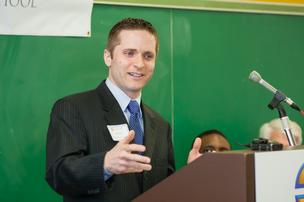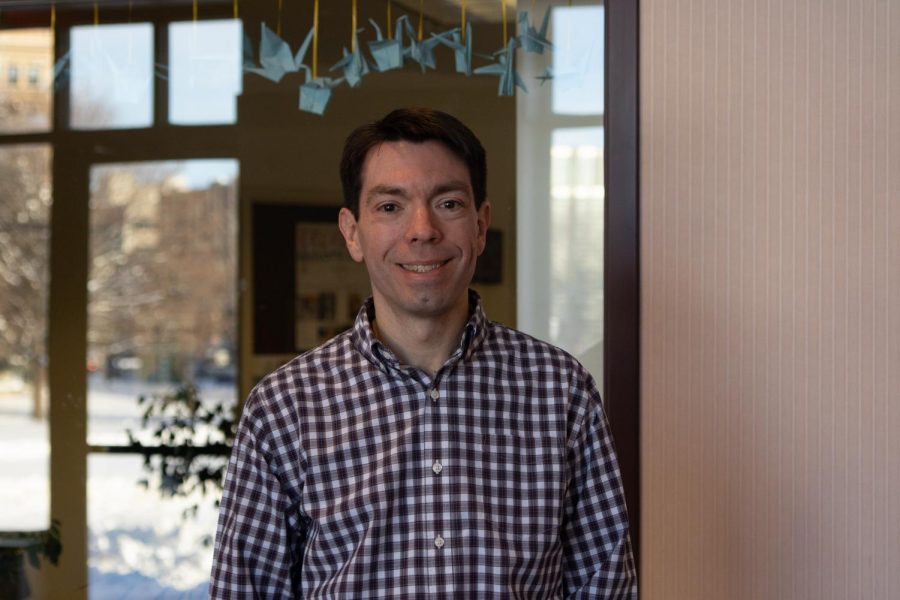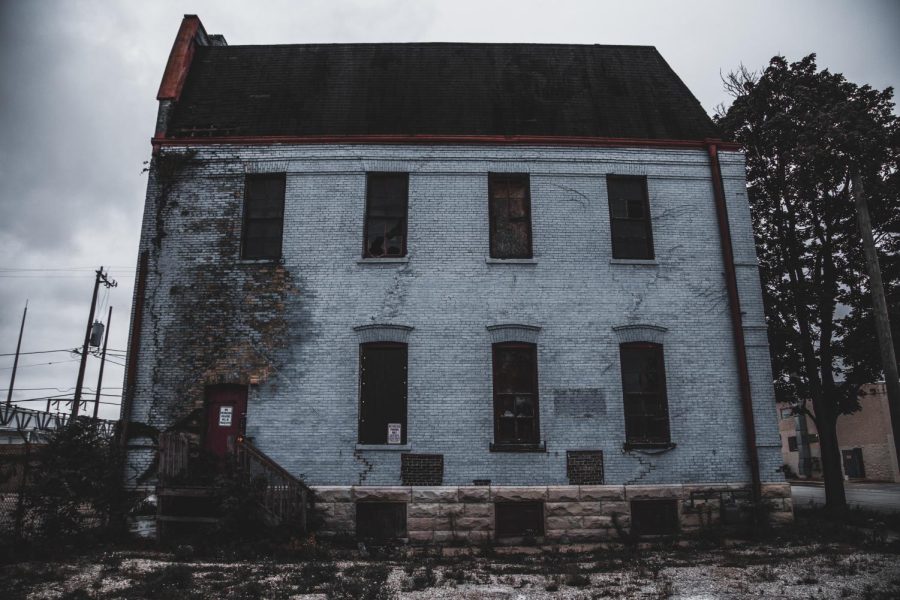Milwaukee area’s new Cristo Rey Jesuit High School, which Marquette helped set up and will open this fall, confirmed it will be a voucher school through the Milwaukee Parental Choice Program.
The program allows families with income three times the federal poverty level or below to apply for admittance. Admitted families can then enroll their children in the private school of their choice. The school is expected to attract much of the Hispanic population in the area, which is a suburb of south side Milwaukee.
Andrew Stith, the new school’s president, said many Cristo Rey students are likely to participate in the program.
“Cristo Rey high schools across the country seek to educate those young people who desire a Catholic and Jesuit college prep education but can’t afford or access it,” Stith said in an email.
A student can be charged a tuition amount determined by the private school if their family’s income exceeds 220 percent of the federal poverty level.
“The Milwaukee Parental Choice Program empowers students from low-income families with the ability to choose where they would like to attend school, just as families with higher incomes choose,” Stith said. “Financial resources from the Milwaukee Parental Choice Program enable many Catholic schools to continue Catholic education’s long-time commitment to educating young people from Milwaukee’s center city.”
Without Marquette and the Milwaukee community, Cristo Rey may never have been approved. Stith is a Marquette alumnus and William Henk, dean of the College of Education, was a co-principal investigator on the feasibility study that found the school’s creation plausible.
“Marquette’s advocacy was essential to the approval of the school,” Henk said. “Marquette has fueled this right from the very beginning and the community outside of Marquette was also vital.”
Henk said Cristo Rey schools provide underprivileged students with a college preparatory education. To cover the costs associated with this project, students are placed in four-person teams and work in local businesses. Each student works one day out of every week and once a month, a student picks up a second day to give the business full coverage.
“By their graduation, the students will have worked successfully in a business for four years,” Henk said. “This program allows them to develop these ‘soft skills’ that employers really like — coming to work everyday on time, dressing appropriately, customer service — it makes the kids mature. They know the expectations of the workplace before they even go to college.”
The school already selected its freshmen class and will add a freshman class of 100 students each year until it reaches its capacity of 400 students. A lot of work still needs to be done before the new school opens in August on 1215 S. 45th Street in West Milwaukee.
“We are working on establishing the final student work placements and are hiring teachers and staff, finishing building renovations and finalizing what our student’s programs – academic, extracurricular and athletic offerings – will be,” Stith said in an email. “We are also preparing work sites for our students workers and deciding on programs to help our students prepare for the workplace.”
Henk said all of the work that has gone into the school is more than worth it to him.
“I regard this as some of the most important work I’ve ever done,” Henk said. “For me, the idea that every year students will get this high-quality education that will position them well for college and change the lives of them and their families makes a ton of work all worth it.”
A SPLIT ISSUE
The voucher program has attracted opposition from people who say the program depletes funds from public schools and subsidizes religious education.
Associate economics professor Noreen Lephardt said she thinks the new high school embodies Jesuit values.
“It is not secret that the Milwaukee Public School System is in trouble,” Lephardt said in an email. “Marquette is offering a positive, forward-looking solution to students. I think, and feel and pray about our Jesuit identity, and when I hear about this initiative I know we are responding to a deep set of Jesuit values.”
Lephardt said Cristo Rey should seek tax dollar funding as long as it’s educating urban youth efficiently.
“In my opinion, as long as there is no interference on matters of faith, and families are freely choosing this high school, then I strongly support public tax dollars flowing to schools that are successful in educating our youth,” Lephardt said. “Education is an investment in youth’s future productivity, sense of self-worth and ability to earn an income.”
Charter and Choice schools like Cristo Rey are economic competition to the existing school system.
“Competition provides the incentive to improve our educational system,” Lephardt said. “As a parent, I would want the best set of options to choose from when deciding about my child’s education.”






